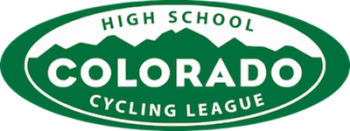BOULDER, Colo. (BRAIN) — Two of the longest-standing high school mountain bike racing leagues in the country have decided to go it alone, withdrawing from the National Interscholastic Cycling Association.
The Colorado High School Cycling League, established in 2009, and the Georgia Interscholastic Cycling League, established in 2013, will separate from NICA this year.
Kate Rau, the executive director of the Colorado organization, said for Colorado the move was “a business decision.” The league had been paying NICA for services including race registration, coach licensing, and a coach curriculum. Now the league will contract with a Canadian firm to develop a registration and licensing system. The league also will continue to work with two Colorado-based cycling coaches, Lee McCormack and Andy Clark, to establish a curriculum.
“From a parent or family perspective, nothing is changing,” she said. “We have always done our own event production, established our own sponsorships and budgets. … I don’t foresee any changes in our mission to get more kids on bikes, for NICA or for the Colorado league.”
 Colorado's league was the first established outside of NICA's two leagues in California and served as a "proof of concept" for NICA as it developed a system to establish leagues nationally, Rau said. "It's been a mutually beneficial relationship. We're very grateful for them for believing in Colorado."
Colorado's league was the first established outside of NICA's two leagues in California and served as a "proof of concept" for NICA as it developed a system to establish leagues nationally, Rau said. "It's been a mutually beneficial relationship. We're very grateful for them for believing in Colorado."
Andrew Feeney, coach of the Fairview High School team in Boulder, said he was expecting few changes for his student-athletes, but he hoped the new independence will allow the league to train and prepare new coaches more quickly.
"I have about 38 coaches at different levels and have to get them all on-bike training and get them approved, and there are very few people who have the ability to do that, so I actually think this will make it easier to train more coaches," Feeney said.
In Georgia, cost-savings was part of the decision to separate, but there were other factors, said Mike Riviello, the organization’s marketing director. Georgia announced its decision on Jan. 28.
“Our local leadership team was able to execute a safe and successful 2020 race season," Riviello told BRAIN. "In fact, we were one of only three leagues in the country to have a complete race season (Utah and Minnesota were the other two). It was our best year ever with record-breaking participation from student-athletes. That achievement, combined with financial considerations, made us feel the NICA affiliation was no longer the essential component it once was. We still respect NICA as we share a common purpose, but now we work independently to achieve that mutual goal of getting more kids on bikes.”
The Georgia organization changed its name in part to recognize its programs for non-competitive cycling; its new name is Georgia Cycling Association.
“While many of our student-athletes participate in our competitive racing series, not all do,” said Kenny Griffin, the group’s executive director. “Especially within our middle-school program, we de-emphasize competition to focus on fun, fitness, skills, and good sportsmanship. Our belief is that transitioning our name from League to Association more accurately reflects the true nature of our programs.”
NICA president Steve Matous told BRAIN, “Although we are disappointed in both league's decisions, we wish the student-athletes, coaches, and volunteers the best."
Matous said before the pandemic NICA’s 3-year average annual growth in student participation was 28%. “Even during the pandemic, our student-athlete numbers grew 11% and coach/volunteer membership by 15%,” he said.
He said with the departure of the Colorado and Georgia leagues NICA still has over 23,000 student-athletes and 13,000 coaches participating across 29 leagues in 28 states.
The Georgia and Colorado leagues were both NICA “affiliate” leagues, meaning they are established as their own non-profit organizations distinct from NICA and could elect to end their contract with NICA at any time. The leagues in Arizona, Utah and Minnesota also are affiliates.
In contrast, NICA’s “Emerging Leagues”, “Project Leagues” and “Chapter Leagues,” are under NICA’s nonprofit registration umbrella and NICA has full legal and financial responsibility for those organizations.
Colorado’s Rau said the decision to leave NICA was unrelated to NICA’s recently announced sponsorship agreement with USA Cycling. She said that Colorado and the other affiliate leagues each have independent sponsorship agreements with USAC.
Rau said Colorado is collaborating with the other scholastic affiliate leagues to develop a registration system with Interpodia, a Canadian firm that provides registration technology to athletic governing bodies, clubs, and events including USAC and Cycling Canada.




